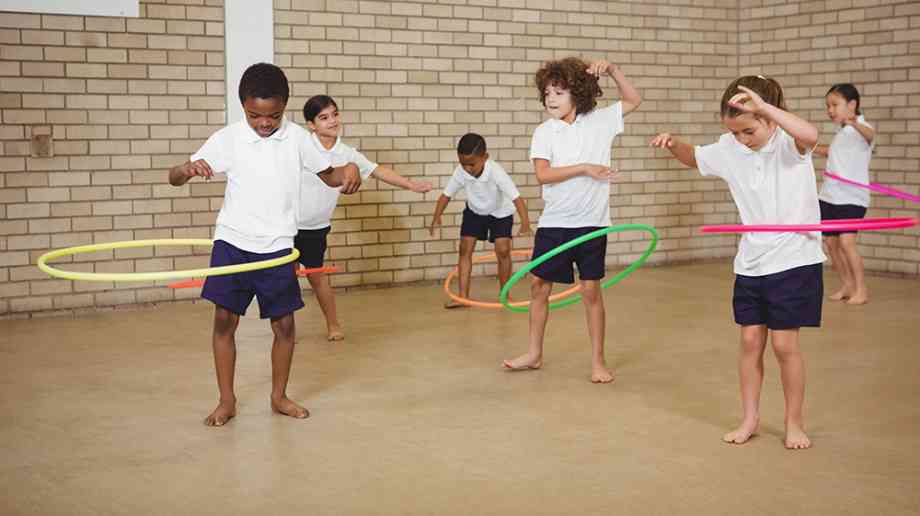
Getting children active for the recommended time
With research showing that many teachers and parents underestimate the recommended time children should be active for, this year’s National School Sports Week is aiming to get more children ‘playing for fun, playing for 60’ between 19 and 25 June
The UK Chief Medical Officer (CMO) recommends that children aged five to 18 should be highly active (with an elevated heart rate) for an average of at least 60 minutes a day, across the week in order to stay happy and healthy.
This can include all forms of activity such as physical education, active travel, after-school activities, play and sports.
However, research by Teacher Tapp commissioned by the Youth Sport Trust shows that 52 per cent of teachers surveyed believe that children should be active for 30 minutes a day or less, and only 35 per cent of teachers think that children should be active for 60 or more minutes a day. This highlights the need for more support and training for schools and teachers.
Similarly, YouGov research commissioned by the Youth Sport Trust reveals that parents are more likely to believe that children only need to be active for 30 minutes a day, less than half of the recommended guidance.
Getting children active
In a bid to drive up awareness of the Chief Medical Officers’ guidance, the Youth Sport Trust has launched its annual National School Sports Week campaign, powered by Sports Direct, to get more children ‘playing for fun, playing for 60’ between 19 and 25 June.
The campaign will work with families, schools and across society to ensure that people are better informed about the benefits of sport and play for their children.
National School Sports Week is aiming to boost children’s activity levels by encouraging people and organisations to make a #PledgeToPlay for 60 minutes every day during this week.
Last year, schools taking part in National School Sports Week provided more than 650,000 young people with opportunities to be involved in PE, play and sport.
Chief executive of the Youth Sport Trust, Alison Oliver MBE, said: “We know children are leading increasingly sedentary lives. Screen time is up, and time spent in nature is down – it’s no surprise that parents and teachers are increasingly concerned about children’s physical activity levels and the consequence of this in the classroom.
“Children’s formative years can influence their wellbeing, development, education outcomes and physical activity levels well into adulthood. There is a compelling evidence base for more play and sport in children’s lives. Pockets of innovative practice which are unlocking new ways to inspire young people to get active are emerging, but a priority has to be raising public awareness of the CMO guidance should be a priority alongside action to help schools and families respond.
“National School Sports Week is a great opportunity for us to engage with schools and families. We’re excited to share some brilliant ideas and guidance as well as uniting a movement of organisations to help amplify why this is important and what’s available at a local level. We are inviting the nation to #PledgeToPlay.
“We are rallying a call. Daily physical activity, play and the development of physical literacy through physical education and school sport should be an integral part of every childhood, and we are really excited to work with Sports Direct to make play and sport more accessible for more young people and in turn help them lead happier and healthier lives.”
Sports Slam
This year’s School Sports Week sees the return of Sports Slam – a children’s fitness initiative which encourages 7–11-year-olds to participate in at least 60 minutes of activity or sport each day. Sports Slam 2023 will include a week-long programme of fun-fuelled activities and challenges, that will inspire kids to get active, while helping them develop skills that go beyond court, field and track.
During National School Sports Week, Sports Slam will enlist the support of some of the country’s most exciting and revered athletes to tour schools across the UK, engaging with the nation’s next generation of sports stars. Alongside getting active and discovering new sports, Sports Slam will help children develop personal skills like confidence, teamwork and mental wellbeing.
Take the pledge
As part of National School Sports Week, schools, families and organisations are called to make the pledge to ‘play for fun, play for 60’. So far 146,172 pledges have been made.
The pledge supports the government ask that children are active within school for 30 minutes a day, and then outside of school for at least another 30 minutes, supporting every child to reach the minimum amount of 60 active minutes.
Once a pledge has been made, access will be granted to a range of supporting materials and resources to help achieve the active minutes. The resources are tailored to suit all age ranges with separate resources to support schools, families and organisations.
Latest News
13/01/2026 - 09:45
Now in its 17th year, the Education Business Awards continue to recognise and celebrate the outstanding work, dedication, and achievements of schools and academies across the UK.
12/01/2026 - 10:04
A new report has shown that 49% of young adult carers had missed out on education or training because of their caring role.
09/01/2026 - 10:13
The measure, added to the Children’s Wellbeing and Schools Bill, delivers on the commitment made in the government’s manifesto to bring multi academy trusts into the inspection system.
08/01/2026 - 10:30
The government is launching a new app allowing students to view their GCSE results on their phones for the first time from this summer.
08/01/2026 - 09:45
Education Business LIVE has announced that Professor Samantha Twiselton OBE of Sheffield Hallam University will speak at the event in March 2026, delivering two thought-provoking sessions focused on initial teacher training and SEND provision.







